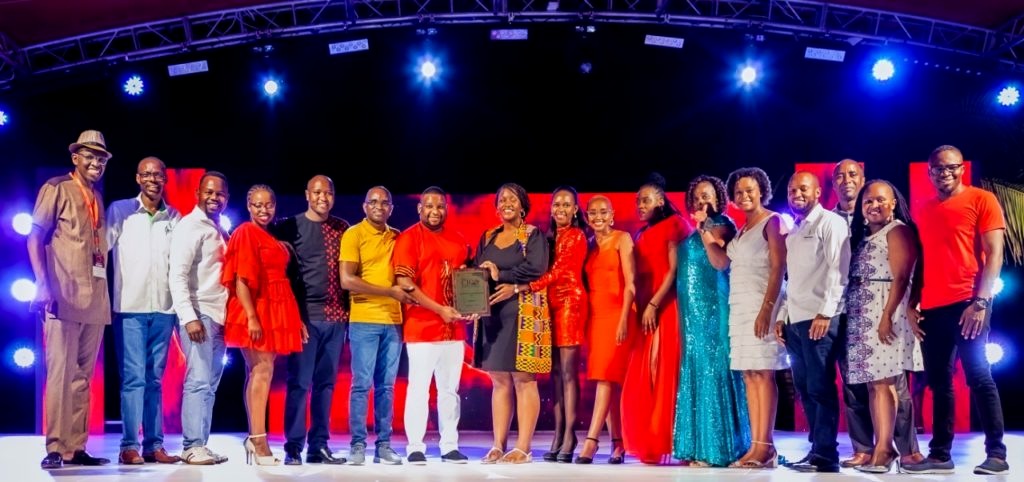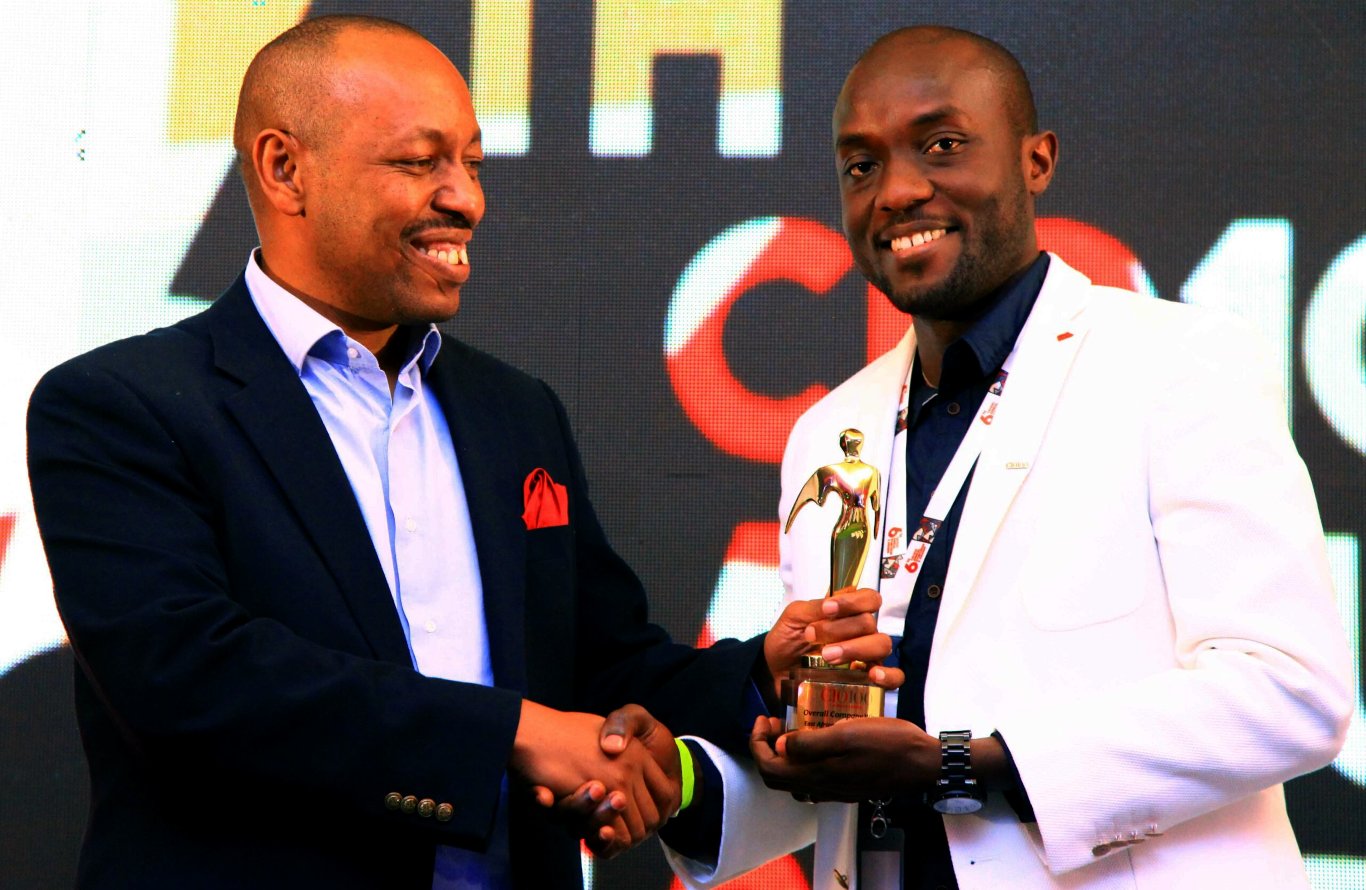Why Tom Mboya Was CIO Of The Year 2021
Why Tom Mboya Was CIO Of The Year 2021
As far as nights go, it was buzzing. The crowd was certainly beautiful. The food favoured by a smacking of the lips. There were a couple of rather obvious gatecrashers which as far as a great party goes, was expected and even welcomed. It certainly made for a fun story! The night was, I kid you not, balmy. I promise I am not writing a Mills & Boon introduction…! It held great promise for over a hundred participants, some of whom had turned up with nyadhi. (The Luo word for great style).
Everyone wanted to know who the ultimate winner would be. There was a shortlist of 10, nine of whom are published in this very magazine. It included a pair of previous winners whose mettle had been tested and found spectacular enough for the win. Tom Mboya Opiyo, rising well over 6 feet, was albeit quiet and surprisingly blending in. He had no idea what was coming. Which is why when his name was called, there was split second of surprise, followed swiftly with a rush of “Whoa!” at which point he got in the requisite award-winner hugs from the people around him before his long strides took him to the stage to accept his plaque to an apt rendition of Tina Turner’s The Best playing in the background.
For a man who had grown up with a father rooting for him to become an engineer, Mboya, I can say confidently, must have done him proud that night. His emotional win, the culmination of years of toiling. 25 years – he said as he accepted his award. “I wanted to be an electrical and electronics engineer, which was my father’s grand wish,” he revealed. “But during my time, getting into that course was like landing an oasis in the desert. We were competing for like 40 seats at The University of Nairobi – the whole country. When I didn’t make the cut, I set eyes on my option B, which was to become a Systems Analyst so I pursued a BSc in Mathematics & Computer Science.”
As he walked from the stage, Mboya was called back by the MC, Eddie Kimani, to share a few words. “I have gotten a lot of support from my team members all through, and I really really appreciate that,” he said, holding his award close, adding, “I know the other colleagues who have won it in the past are people I really respect. I am very very happy and elated.”
An action movie lover, Mboya has watched all the Bourne movies, Money Heist, Click Bait, and Fauda. The man is clearly a doer. When we finally sit down for a one-on-one, I ask him if he was expecting to win the Africa CIO of the Year 2021 award. “I was hopeful. One of the laws of the professional jungle is that every dog has their day.” To Mboya, the fact that he was listed alongside Jaine Mwai, the 2021 CIO of the Year, Kevin Ogwang’ the 2016 CIO of the Year, meant that his peers found him, and his work, quite remarkable. And that is what he celebrated.
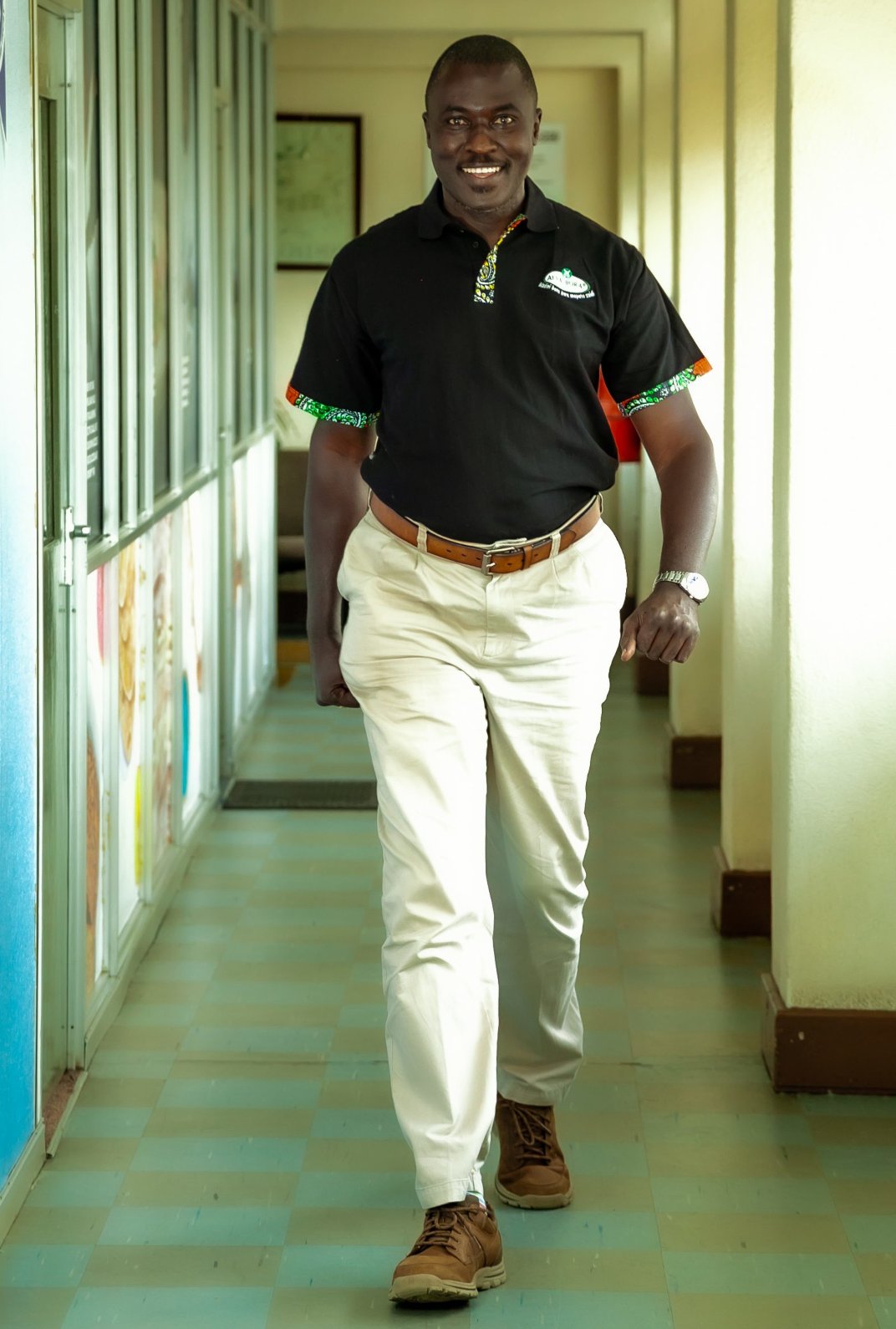 Mboya’s career started after he attended Serani Primary School, Mombasa, - which makes it fitting that his success be acknowledged in the very same county he grew up in - and did his A Levels (KACE) at H.H. The Aga Khan Kenya Secondary in 1989. He then joined Jomo Kenyatta University of Agriculture & Technology (JKUAT) for a BSc in Mathematics & Computer Science, graduating in 1994. His postgraduate studies were at the United States International University (Africa) – USIU, where he graduated with an MBA (Finance) in 2011.
“I have, like a couple of my peers, done a couple of certificate courses – MCSE, ITIL, Lean Focus Yellow Belt, Lean Six Sigma Black Belt, ISO 27001, CISM, CCNA, PMP, Coaching/Mentoring, and many others. Career-wise, I started in Mombasa.” Here is a quick look at his rise and timeline.
Mboya’s career started after he attended Serani Primary School, Mombasa, - which makes it fitting that his success be acknowledged in the very same county he grew up in - and did his A Levels (KACE) at H.H. The Aga Khan Kenya Secondary in 1989. He then joined Jomo Kenyatta University of Agriculture & Technology (JKUAT) for a BSc in Mathematics & Computer Science, graduating in 1994. His postgraduate studies were at the United States International University (Africa) – USIU, where he graduated with an MBA (Finance) in 2011.
“I have, like a couple of my peers, done a couple of certificate courses – MCSE, ITIL, Lean Focus Yellow Belt, Lean Six Sigma Black Belt, ISO 27001, CISM, CCNA, PMP, Coaching/Mentoring, and many others. Career-wise, I started in Mombasa.” Here is a quick look at his rise and timeline.
- Joined a start-up ICT company – LISCO. “And developed programmes using Visual Basic & MS Access and offered training from 1994-1996.”
- Worked with Coast Hauliers/Highway Carriers – 1996-1997 as a Systems Administrator “where I developed systems I remember to date. One of them that analysed costs of trucks qualifies as a BI system by current naming standards.”
- Joined Caltex Oil (Chevron) in Dec 1997 until April 2008 initially as an Analyst/Programmer and later as a Systems Analyst. “Dream achieved! I left to join Sony Sugar Company in South Nyanza as Head of ICT.”
- Joined Kenya Airways, the Pride of Africa, in 2011 as Business Systems Implementation Manager before changing departments to Operational Excellence. “That is where I trained on Lean Six Sigma Black Belt.”
- After KQ, “I made a cameo at MultiChoice Kenya before moving to Unga Holdings Ltd, where I am currently responsible for ICT.”
You’re one of them so what are the qualities that you think make a good CIO?
Apart from being knowledgeable and strategic in the tech space, a good CIO should have business acumen. They must also be able to balance between achieving the goals of their organisations and making sure their teams remain supported, motivated, and successful.
The award happened as the year was rounding up. What is your top priority come 2022 as a CIO?
Finalising a new ICT Strategy that is geared toward a connected factory is key in my agenda. This is geared towards a seamless sharing of information between people, machines, and sensors.
The world of tech is so fast-paced no one can keep up with it all the time. How do you keep up with the latest tech news and trends in your line of work?
Through our vendors and potential service providers, I can get highlights and presentations/demos on different/emerging technologies. I also do lots of research, attending ICT training and conferences like CIO Africa events, as well as benchmarking with our peers and different sectors. There is a lot of learning and as CIO, you have to listen to the ground. The field is very fluid.
I would like to hazard that no one can be successful without a touch of failure coming along for the ride. Can you share an example or two of projects that you did that were not successful?
Failure is not an option for me so maybe I can talk of ‘not as successful as I had envisaged’ – One, I championed the implementation of a Time and Attendance System at one of the companies which were meant to use a fingerprint reader to authenticate staff. During implementation, staff protested, and we had to switch to proximity cards. The system improved staff attendance and availability to almost 100 per cent but did not eliminate the possibility of staff sharing cards. I’m thinking of a second one!
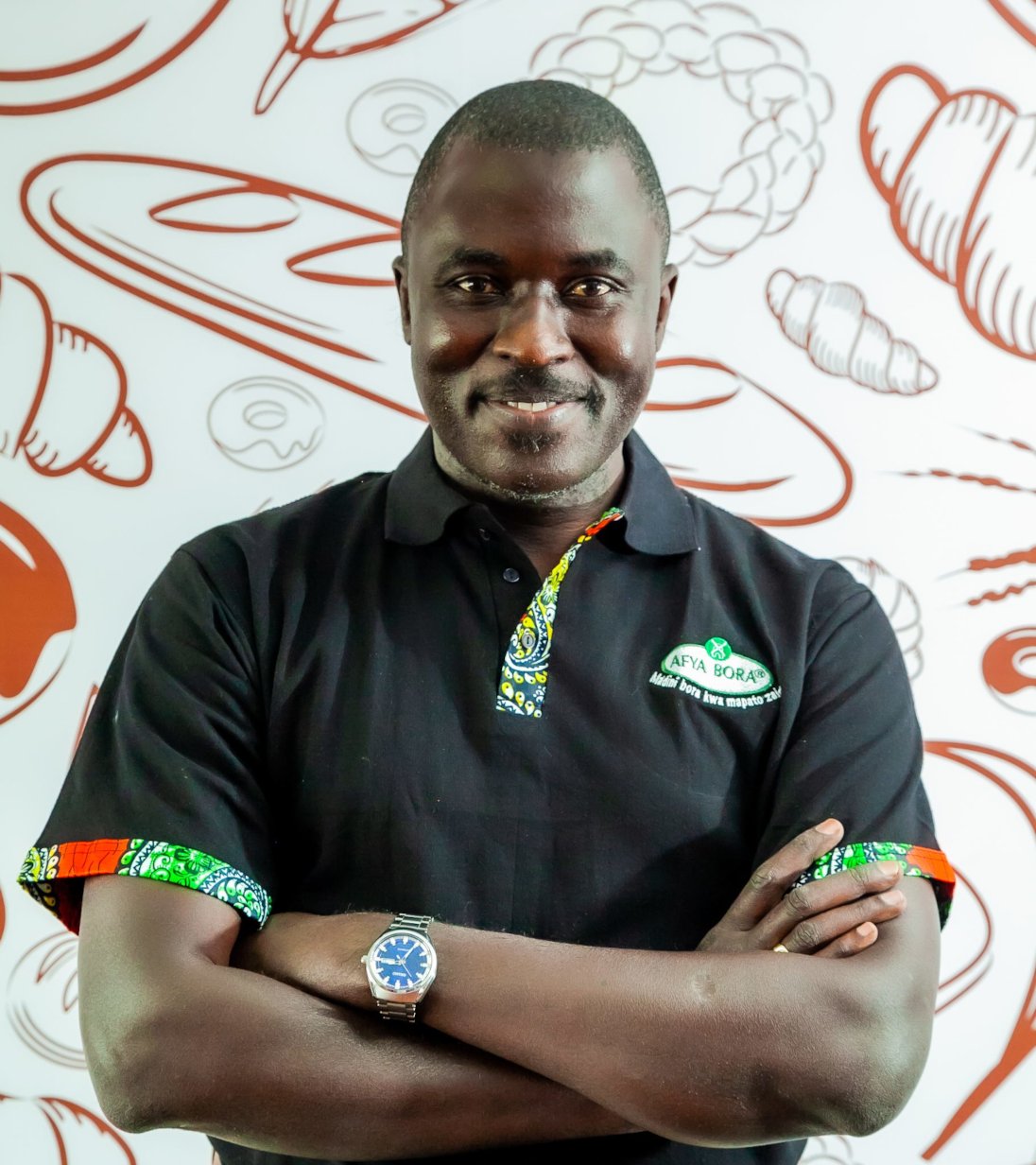 Well then! Be that way…! Can you share an example of a project that you did that was successful?
These ones have been many throughout my career and I can count a couple at each company.
Well then! Be that way…! Can you share an example of a project that you did that was successful?
These ones have been many throughout my career and I can count a couple at each company.
- I feel very proud of the systems that I did from scratch at Coast Hauliers – a truck cost monitoring system that analysed costs incurred by trucks and trailers telling us whether a truck was profitable. This would then lead to decisions on whether or not to keep operating a truck. It was actually analytics software by current standards.
- At Unga, we have put in place SAP ECC 6 - 13 modules; and we are very proud of it. SAP runs most of our business processes.
- We have also implemented lots of security systems (user awareness, Firewall, Managed SIEM, Kaseya network monitoring and patch management, DocuSign for digital signing of documents, Office 365, Helpdesk ticketing system & mood meter, Multi-Factor Authentication for SAP & O365).
There are many successful projects.
Each project needs to bring along with it a whole slew of staff. How do you get buy-in for projects and who do you need to get it from?
Buy-in is very important for a project to succeed. Our strategy is to first do a POC (proof of concept) and get to know all the associated costs. We then do a business case and calculate ROI (return on investment), and IRR (internal rate of return). When we present a business case for approval, it should make sense to the leadership and the board. Luckily, we have a very switched-on leadership and they have been very supportive of the projects that show a positive ROI. Since we engage with the business in terms of identifying possible projects, this makes the projects a push from the business which works out well for us.
You must work with a cross-generational team. How big is your team and what are they like?
I have a small, agile, and very focused team. Including me, we are eight. This includes four in the SAP Center of Excellence (Certified Business Analysts in SAP modules), two in infrastructure, and one cybersecurity and doubling up as a Programmer, as well as the Digital Transformation Manager, who has a dual reporting to me and the General Manager.
You must have had thoughts on how to build your team so what do you look for when you are building a team?
Integrity, passion, and a team player. The rest can easily be taught.
What has been your experience working with Millennials?
They are vibrant, ready to push limits and take on new challenges, and have energy and flexibility. I have had a very exciting time working with Millennials and I view them like my own children. As long as you provide an enabling environment for them, you get exemplary results. All my team members are Millennials.
From working at home to working from anywhere and now hybrid workplaces, how have you and your team prepared for the new world of work?
We tightly secured our network and systems – with remote working comes increased cyber threats. There is also opening up our systems for remote access with implemented collaboration tools. Having adopted a Cloud-First approach, many of the systems we have acquired in the past five years are cloud-based so staff can access them from anywhere. When COVID-19 happened, we did not have any challenges transitioning into the work-from-home arrangement other than buying extra laptops.
One of the things a CIO needs to do in their line of work includes strong leadership. How do you manage your team?
I use proven models like SWOT Analysis to gauge their Strengths & Weaknesses | Growth Opportunities and Threats. Through this, I can mentor and support accordingly. This is also aligned via the Performance Management System for tracking and management. I also invite ideas from the team and always try not to impose my ideas on them. It allows the team to express themselves, problem solve and feel valued and motivated.
I’m betting every year has something of a resolution or area of transformation for your team. What are some of the technologies you see you and your team embracing in the coming year and why?
- IoT- to improve production processes,
- RPA- to automate manual and repetitive tasks.
Right now, in the US, they are experiencing what is being called The Great Resignation. So far about 4 million Americans have quit because the pandemic made them realise there has to be more to work than they are currently experiencing. They are saying they want more – not necessarily money, but specifically, purpose. How do you make sure that you retain your employees?
Through our Performance Development Plan – PDP. This programme looks into how my team can be developed at a personal and professional level and prepared for internal growth opportunities. Opportunities are open for staff to move and grow within the company. I also try to engage with HR to ensure we stay competitive in terms of compensation. A good environment plus compensation equals a motivated employee.
Your career spans two and a half decades, and you have explained how it has been coming along. When it comes to now, in what ways would you say you have moved Unga Holdings forward?
I have used technology to:
- Empower our employees:
- Our robust SAP system helps them have a smooth workflow.
- Our link which has 99.9 per cent uptime ensures the employees are not interrupted while working.
- Secured and remotely accessible systems- employees can work from anywhere at any time securely with the help of modern tools.
- Employee training on cyber security awareness – KnowBe4
- SLA adherence of over 95 per cent per month and CSI of between 85-89 per cent.
- Digital signing of solutions using DocuSign – we must have been the first local company to do this
- Optimise operations: We have automated material control both in Inbound and Outbound Delivery Processes in all five Unga sites by rebuilding our weighbridge system. This plus other innovations has led to optimised operations.
- Opening up new markets for Unga through the implementation of an e-commerce platform.
- Improved customer engagement by putting in place a customer’s management system where customers directly engages with us.
- Reduced our spend in support by having a certified and dedicated in-house SAP CCOE.
- Reduced printing costs by about 60 per cent. Actually, we now do very little printing and can actually lower printing numbers further, but we have to balance convenience and cost.
A CIO is expected to be a visionary with insights into trends well into the future. Where do you see your industry heading in the next two to five?
We are moving into the Fourth Industrial Revolution (4IR) where Operation Technology (OT) is merging with Information Technology (IT). This will be achieved by the already exponential growth of technologies such as Mobile Internet, Artificial Intelligence (AI), Virtual & Augmented Reality (AR & VR), Internet of Things (IoT), Robotic Process Automation (RPA), etc.
You’ve been at this for some time now. What would you say you like about your career?
I play a central point in supporting businesses in achieving their goals and objectives by leveraging technology. Seeing the positive results of these transformations is very satisfying. It’s also never boring – it is continuously changing.
CIOs are expected to be business strategists, partners with the CEO, and have leadership, interpersonal, and even intrapersonal and technical skills. Do you think we are asking a lot of our CIOs?
Not at all. CIOs should be all-rounders since technology has now evolved from being a support tool to a business enabler now, making any business model possible. A CIO must be agile, and be a good communicator sideways, upwards, and downwards. The holder must also learn from peers, business users (who are experts in their own fields), and other partners.
You must have stacks of data as Unga Holdings. Would you say that you are GDPR compliant?
We are working on a journey towards Data Protection Act 2019 compliance. This is our version of GDPR. We have done well as a business, but it’s a journey that we hope to complete in the near future.
How quickly would you say you can scale your IT?
Very quickly, actually thanks to public and private cloud options. With Microsoft, AWS and Google setting up shop in the continent, scaling up or down are now very easy and this makes business move quicker. The era of buying boxes is dying off and what a great convenience this brings!
So, how do you get the most out of your data?
As it’s usually said in many forums, ‘Data is the new oil.’ We are using SAP BI/Business Warehouse to analyse our data to make business sense. Owing to the lack of skillsets in this area, we have been able to make very nice dashboards using Power BI. The demand is coming from the users, and I must say – there is room for further enhancement in this area.
I believe there is no such thing as self-made. Who has been some of your mentors in your IT journey?
I have had mentors throughout my career and would like to first apologise to those I might not mention today.
- At Chevron – Jona Owitti, our then Regional Audit Manager, was a great mentor. He challenged me to always learn especially CISM/CISA. One piece of advice he gave me that I stuck with is to always ensure I don’t leave my wife behind. That ensures you maintain the same wavelength with your partner. Very sensible advice.
- Kenya Airways – Henry Obare, Head of IS Development, and Paul Obiero, Head of Operational Excellence. They helped me succeed and grow in my career at Kenya Airways in both Project Management and Kaizen / Lean Six Sigma.
- Unga Holdings – James Nyutu, Group Finance Director, and Nick Hutchinson, Group Managing Director. They are thoughtful, ready to share coaching tips, and give me a free hand to implement what I think can make a difference to the business. I am so grateful for their support.
Others have taken you along their journey. Who are you taking along with you? Who are some of your mentees?
I can count 20 plus ICT Managers in the country who I have coached or have been part of my team. I am very impressed that many of them have done exemplarily well in their careers and are now Directors, Heads, or IT Managers. Back to Unga, I can count Pauline Karanja, Digital Transformation Manager, Njukia Benard – Infrastructure Lead, Ronald Ouma – SAP technical Lead, Emmanuel Kimathi – ICT Business Analyst and Security Architect, Raymond Osoro – SAP BASIS Lead, Joyce Rutto – SAP SD/MM Business Analyst and Dennis Too – ICT Systems Administrator. I also provide mentorship to relatives, and young people who are not necessarily in the ICT field.
Enough about work. What do you do for fun?
- I watch Arsenal (an extreme sport)! Play Chess and Scrabble. I like travelling but COVID-19 has slowed that down. But so far, I have visited all the continents except Australia and New Zealand.
- I also like spending time on social impact activities. I have planted over 20,000 trees back home in Homabay and Migori, planted banana trees, and keep about 400 improved kienyeji chicks. This is mainly to challenge my people that it can be done. I hope that with time, the disposable income in my region will rise as people learn best practices from my investment and other similar ones.
Your wife congratulated you on LinkedIn, and Unga threw you a congratulatory party. Would you say that you have a solid support system?
My wife is my No. 1 fan, literally. She is also bright, professionally aggressive, and pushes me to scale up. She is also my No. 1 critic other than my four daughters.
How did your family celebrate you when they heard that you had won?
They threw me a lovely party. My little girl now calls me CIO and it sounds so funny.
CIOs, like lawyers, seem destined for a life of perusing. What are you currently reading?
I am reading Start with Why by Simon Sinek. The book looks at a key aspect of what is important in business success and that is – ‘why’ do you do something. What you do only goes to support the Why.
And which music are you currently listening to?
I am a reggae, Lingala, and, Ohangla fan so I will listen to Gregory Isaacs one moment and then switch to Franko Luanzo Makiadi the next and before you know it, I am listening to Osogo Winyo and Musa Jakadala. I used to like Whitney Houston’s songs when I was younger.
Finally, one last but very critical question. If a computer is on the fritz at home, who repairs it?
My girls have taken over. My first born, Zawadi, is studying Electrical and Electronic Engineering and is very passionate about ICT. She got an A in Computer and does some serious things in Excel and programming that make me wonder what I learned in college. Her sisters are also equally into ICT and before any of them comes to me for a solution, they have tried to restart, uninstall and reinstall, and other troubleshooting options. I feel really blessed to have such talented girls. My wife also has a background in ICT so literally, everyone is ICT savvy at home.
This article was first published in the December/January 2020/2021 CIO Africa magazine.
At a glance
November 22 - 24, 2023
Leisure Lodge Beach and Golf Resort, Diani
View Venue Map
Social Links
Connect with industry leaders and peers through our social links section and don't miss out on important event updates as they happen.
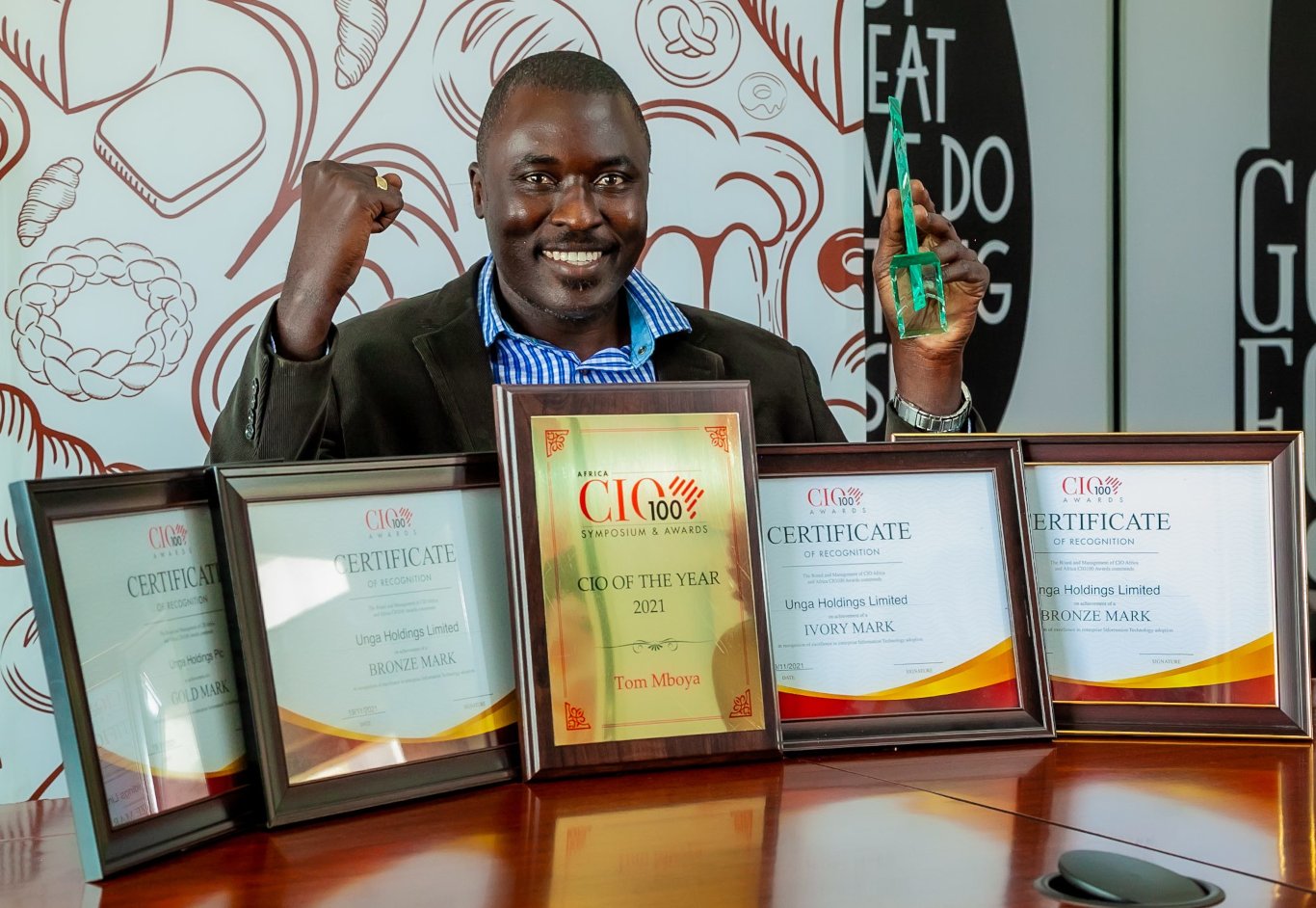
 Mboya’s career started after he attended Serani Primary School, Mombasa, - which makes it fitting that his success be acknowledged in the very same county he grew up in - and did his A Levels (KACE) at H.H. The Aga Khan Kenya Secondary in 1989. He then joined Jomo Kenyatta University of Agriculture & Technology (JKUAT) for a BSc in Mathematics & Computer Science, graduating in 1994. His postgraduate studies were at the United States International University (Africa) – USIU, where he graduated with an MBA (Finance) in 2011.
“I have, like a couple of my peers, done a couple of certificate courses – MCSE, ITIL, Lean Focus Yellow Belt, Lean Six Sigma Black Belt, ISO 27001, CISM, CCNA, PMP, Coaching/Mentoring, and many others. Career-wise, I started in Mombasa.” Here is a quick look at his rise and timeline.
Mboya’s career started after he attended Serani Primary School, Mombasa, - which makes it fitting that his success be acknowledged in the very same county he grew up in - and did his A Levels (KACE) at H.H. The Aga Khan Kenya Secondary in 1989. He then joined Jomo Kenyatta University of Agriculture & Technology (JKUAT) for a BSc in Mathematics & Computer Science, graduating in 1994. His postgraduate studies were at the United States International University (Africa) – USIU, where he graduated with an MBA (Finance) in 2011.
“I have, like a couple of my peers, done a couple of certificate courses – MCSE, ITIL, Lean Focus Yellow Belt, Lean Six Sigma Black Belt, ISO 27001, CISM, CCNA, PMP, Coaching/Mentoring, and many others. Career-wise, I started in Mombasa.” Here is a quick look at his rise and timeline.
 Well then! Be that way…! Can you share an example of a project that you did that was successful?
These ones have been many throughout my career and I can count a couple at each company.
Well then! Be that way…! Can you share an example of a project that you did that was successful?
These ones have been many throughout my career and I can count a couple at each company.

